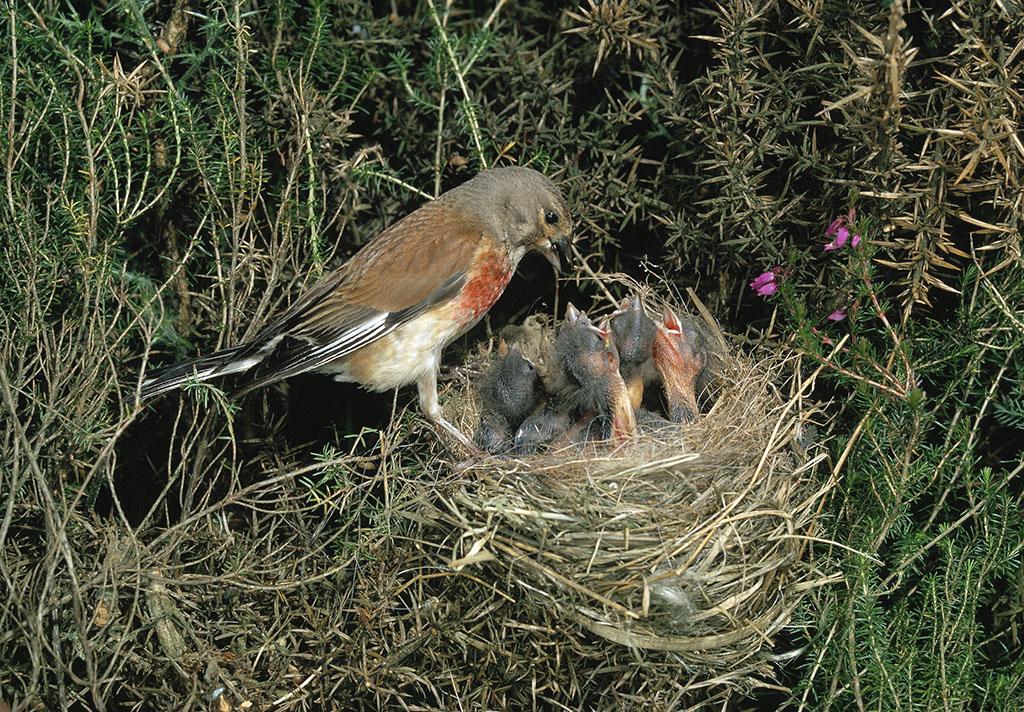(单词翻译:单击)
听力文本
This is Scientific American — 60-Second Science. I'm Jason Goldman.
Got a minute?
More than half of U.S. households provide food for birds. It's a billion dollar industry. Now a study asks whether the same feeders that attract birds also attract predators that eat the eggs and newly hatched nestlings of those birds.
"We imagined that the food resource on the landscape could have a couple different effects on relationships between nest predators and their prey." Ohio State University researcher Jennifer Malpass.
"On the one hand, you could see that the food might be attracting predators to certain areas, and that could increase nest predation risk. However, predators may be exploiting these food resources, and if you've got a good, predictable food resource on the landscape that's easy for predators to access, you could imagine that they could switch to those anthropogenic, or those human-provided foods, like bird feeders. And that could perhaps lessen nest predation risk."
Which could also be a problem, because predators help control the population.
Malpass and her team looked at the nests of American robins and Northern Cardinals in seven Ohio neighborhoods. They noted the presence or absence of feeders and recorded potential nest predators, like squirrels, domestic cats, and other birds. Over the four-year study, they observed more than 15,000 day-active predators across 19 species, but only brown-headed cowbirds and American crows were associated with bird feeders. The results were published in the journal The Condor.

The survival of Northern Cardinal nestlings did not seem to be related to the presence of these nest predators or even to bird feeders. But the American robins tell a different story.
"In areas that had both many crows and many bird feeders, American robin nest survival was the lowest."
So the effect of bird feeders on urban wildlife communities differs from species to species, neighborhood to neighborhood.
"At least some predators seem to be attracted by bird feeders and the food resource they provide, and in some cases this can lead to increased nest predation risk for native backyard breeding birds."
But that doesn't necessarily mean that we should get rid of all the bird feeders.
"There are some great ecological and social benefits from this practice. We see them as nature's ambassadors. They're a point of connection to nature and the outside world and our native wildlife."
Homeowners have been feeding wild birds for a long time, but only now are scientists finally beginning to understand just how that affects urban ecosystems. And the upshot, of course, is: it's complicated.
Thanks for the minute for Scientific American — 60-Second Science Science. I'm Jason Goldman.
参考译文
这里是科学美国人——60秒科学。我是杰森·古德曼。
有一分钟时间吗?
超过一半的美国家庭为鸟类提供食物。这是一个十亿美元的产业。现在一项研究提出了一个问题:鸟类饲养者在吸引鸟类的同时是否也在吸引鸟类的天敌?这些天敌以鸟卵和刚孵化的雏鸟为食。
“我们认为食物资源可能对巢掠食者和猎物之间的关系产生几个不同的影响。”俄亥俄州立大学研究员珍妮弗·马尔帕斯说。
“一方面,食物可能会将捕食者吸引到某些地区,这可能会增加巢捕食风险。不过,捕食者可能正在利用这些食物资源,如果拥有良好且可预测的食物资源,那很容易被捕食者获得,你可以想象,他们会转向那些人为的、或那些人类提供的食物,比如鸟类饲养者提供的食物。这可能会减少巢捕食风险。”
这可能也是一个问题,因为捕食者有助于控制数量。
马尔帕斯和她的团队对俄亥俄州七个社区的美洲知更鸟和北美红鹊的鸟巢进行了研究。他们标注了饲养者在场和不在场的情况,并记录了潜在的巢穴掠食者,比如松鼠、家猫和其他鸟类。在四年的研究中,他们观察19个种类的活跃捕食者长达15000多天,但只有褐头牛鹂和美国乌鸦与鸟类饲养者有联系。该研究结果发表在《秃鹰》期刊上。
北美红雀的雏鸟能存活下来似乎与巢捕食者甚至与鸟类饲养者没有关系。但美国知更鸟的情况则完全不同。
“在有许多乌鸦和鸟类饲养者的地区,美国知更鸟雏鸟的存活率最低。”
因此,鸟类饲养者对城市野生生物群落的影响因物种不同、邻里关系不同而不同。
“至少一些捕食者似乎是被鸟类饲养者和食物资源吸引来的,在某些情况下,这可能会导致本土庭院饲养鸟类所面临的巢捕食风险增加。”
但这并不意味着我们应该去除所有鸟类饲养者。
“这一实践会带来极大的生态效应和社会效益。我们把它们当作大自然的使者。他们是连接自然、外部世界以及本土野生动物的桥梁。”
长期以来房主们一直在饲养野生鸟类,但是现在科学家终于开始理解这会对城市生态系统产生何种影响。当然,结果很复杂。
谢谢大家收听科学美国人——60秒科学。我是杰森·古德曼。
译文为可可英语翻译,未经授权请勿转载!
重点讲解
重点讲解:
1. switch to 转换;改变;转变;
例句:Estonia is switching to a market economy.
爱沙尼亚正在向市场经济转轨。
2. lead to 招致;致使;导致;
例句:This loss led to the demise of the business.
这一损失导致了公司的倒闭。
3. get rid of 摆脱;甩掉;赶走;
例句:It took me over half an hour to get rid of him.
我花了半个多小时才摆脱了他。
4. see as 认为;把…看作;
例句:She saw him as a visionary, but her father saw him as a man who couldn't make a living.
她认为他是一个有眼光的人,但是她父亲却认为他没有谋生的能力。


